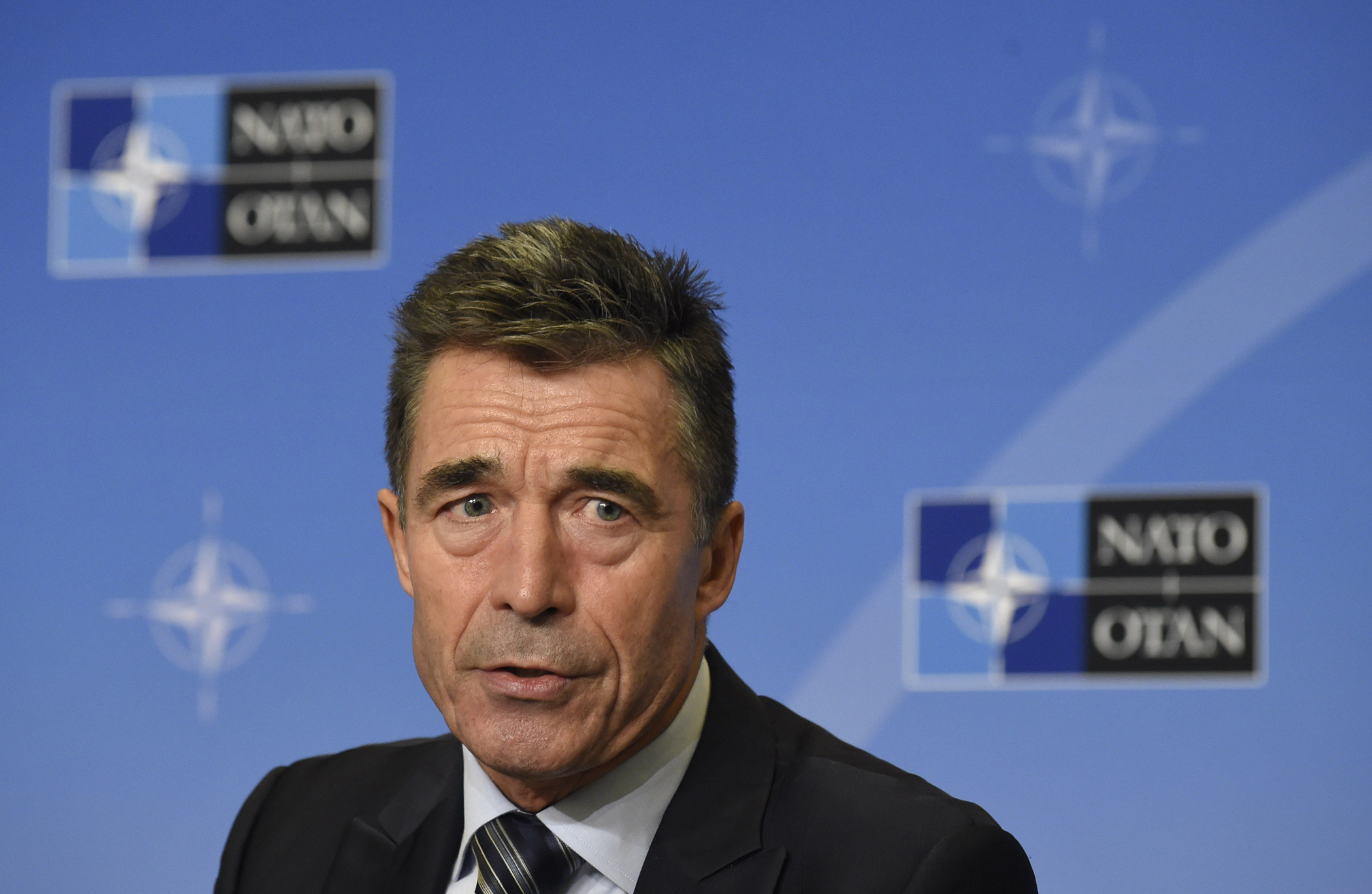
NATO Secretary-General Anders Fogh Rasmussen announced Monday that the organization was planning to assemble a “spearhead” force that would be able to “travel light but strike hard if needed” in the face of Russia’s increasingly aggressive behavior in eastern Ukraine.
The new outfit would be manned by several thousand rotating allied troops who would be ready to respond by air or sea with the aid of special forces, explained Rasmussen.
“The Readiness Action Plan responds to Russia’s aggressive behavior,” he told reporters in Brussels. “It equips the alliance to respond to all security challenges, wherever they may arise.”
NATO representatives gathering for the Wales summit later this week are preparing a Readiness Action Plan to make the organization more agile.
Analysts said the announcement represents the strongest response yet from the military alliance since Russia began to forcefully intervene in Kiev’s affairs following the fall of the nation’s pro-Kremlin President Viktor Yanukovych earlier this year.
“Actually, what has been announced seems to be quite significant in that NATO will start stationing troops quite close to Ukraine—not in the form of permanent bases but actually they will be rotating them in the form of temporary bases,” Clara Portela, assistant professor of political science at Singapore Management University and a sanctions specialist, told TIME.
“This is the first step that Western Europe has taken, in military terms, since the crisis started,” Portela said.
On Tuesday, Mikhail Popov, deputy head of the Russian Security Council, said the transatlantic alliance’s recent maneuvers demonstrate it remains among Moscow’s principal adversaries.
“I have no doubts that the issue of NATO military infrastructure encroaching on our borders, including through the expansion of the alliance, will remain among the biggest military threats to the Russian Federation,” Popov told Russian news agency RIA Novosti.
Popov’s remarks came as Ukrainian forces continued to engage in heavy firefights with pro-Kremlin insurgents, who NATO claims are being buttressed by Russian hardware and troops.
On Monday, the Ukrainian military reportedly withdrew from the international airport at the rebel stronghold of Luhansk after suffering heavy fire from a Russian tank battalion, according to Reuters.
The Wall Street Journal reported Monday that the Ukrainian military is now assuming a much more defensive posture throughout the country’s southeast in order to beat back what Kiev fears is an all-out invasion of the country by the Russian military.
The tactical battlefield shift represents a sizable reversal in combat fortunes; Kiev looked poised to crush the separatist insurgency just weeks ago after forging large-scale inroads into rebel territory throughout the summer.
Ukraine’s Minister of Defense Valeriy Heletey described the conflict this week as the most serious military engagement in Europe since the Second World War, one that could cost tens of thousands of lives.
“A great war has arrived at our doorstep, the likes of which Europe has not seen since World War II,” he said in a Facebook post.
According to the U.N.’s Office for the Coordination of Humanitarian Affairs, at least 4,445 people had been wounded and 1,830 people killed in eastern Ukraine as of Aug. 27.
Human Rights Watch (HRW) this week chided both government forces and insurgents for “contributing to rising civilian casualties” in and around Luhansk by unleashing artillery barrages that appear to be indiscriminate.
“Local residents are subjected to terrifying daily shelling, much of it apparently unlawful, and that the number of civilian casualties is steadily rising,” said Ole Solvang, senior emergencies researcher at HRW, in a statement.
More Must-Reads from TIME
- Donald Trump Is TIME's 2024 Person of the Year
- Why We Chose Trump as Person of the Year
- Is Intermittent Fasting Good or Bad for You?
- The 100 Must-Read Books of 2024
- The 20 Best Christmas TV Episodes
- Column: If Optimism Feels Ridiculous Now, Try Hope
- The Future of Climate Action Is Trade Policy
- Merle Bombardieri Is Helping People Make the Baby Decision
Contact us at letters@time.com